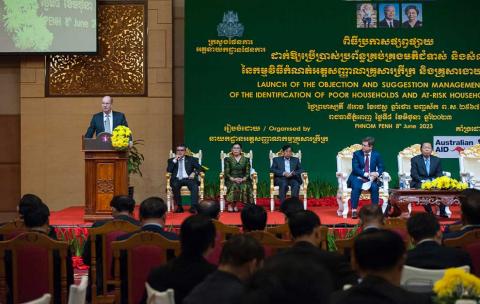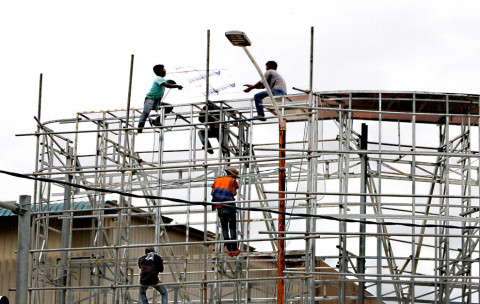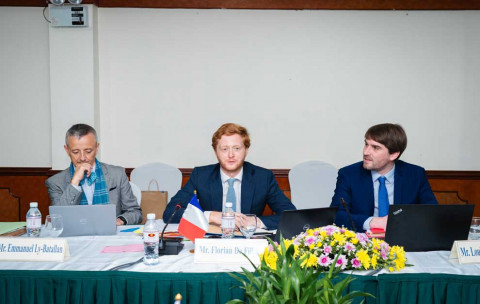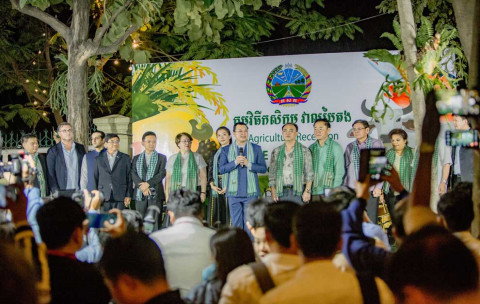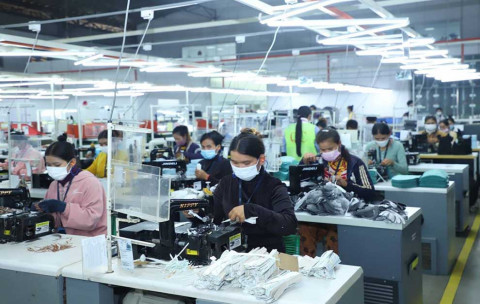
Minister Sar Sokha addressed graduation event at National University of Chea Sim Kamchaymear on December 7. SAR SOKHA VIA FB
Deputy Prime Minister and Minister of Interior Sar Sokha reiterated that investing in education is crucial for lifting people out of poverty, during a graduation ceremony at National University of Chea Sim Kamchaymear (CSUK) on December 7.
Sokha, former secretary of state at the education ministry, highlighted that in developed countries, reducing poverty does not solely rely on providing aid, as this often leads to deeper hardship.
“To lift people out of poverty, the primary solution is investing in education. I firmly believe that the government is committed to this cause, focusing on enhancing educational quality right from the kindergarten level,” he stated.
He also expressed concern about global education levels, citing UN data that a third of children under 12 are illiterate. He noted that some of these children can read but fail to comprehend the meaning, underlining the need for improvements from the grassroots level.
He commended the Ministry of Education, Youth and Sport for implementing policies and programmes aimed at enhancing educational quality, particularly at higher levels.
Chhort Bunthong, head of the Culture, Education and Tourist Relations at the Royal Academy of Cambodia, noted that education is vital for long-term poverty reduction and human resource development.
He outlined the necessity for both immediate and long-term strategies to combat poverty.
“Firstly, the immediate response is crucial. For instance, if someone is starving and facing an economic crisis, simply sending them to school won’t suffice; they need direct assistance like food and financial support,” he explained.
“Secondly, for a long-term strategy, it’s about educating people to transform them into skilled human resources, teaching them to become experts and the like,” he added, emphasising the need for a comprehensive approach to poverty alleviation.
Bunthong supported the government’s policy for promoting education, stressing the importance of its effective implementation, including teacher capacity building, training support materials, experiments and study tours.
At the onset of the 2023-2024 academic year, the government announced four key educational policies as part of its Pentagonal Strategy - Phase I.
These include improving school governance, revising curriculum and extracurricular activities to meet needs, enhancing student health care through nutrition programmes and food quality control in schools and encouraging the involvement of parents, guardians and communities in education, under the slogan, “State-Community Partnership and for Education”, as per the ministry.










